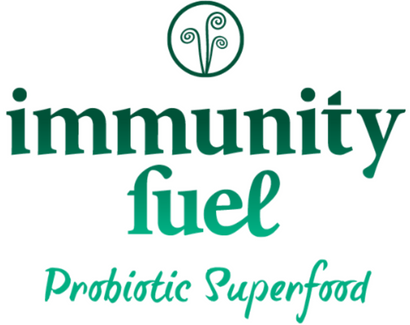Flat Rate Shipping AUS-Wide | Free Shipping Over $150 | Subscribe & Save
Flat Rate Shipping AUS-Wide | Free Shipping Over $150 | Subscribe & Save
Spring Fever: Beating Hayfever Naturally
October 04, 2022 3 min read

Hayfever: For some of us it happens in spring time and for others its just on the turn of autumn.
A change of season can often mean the onset of symptoms for seasonal hay fever or allergic rhinitis sufferers.
Typically a reaction to pollen from trees, grasses and weeds or household dusts, hayfever makes the immune system believe these particles are harmful invaders, triggering production of the antibody immunoglobulin E.
This in turn stimulates a release of histamine, causing inflammation and swelling of the nasal passages, along with excessive mucus production and other symptoms such as sneezing, itching nose and throat, watery eyes and a clear, runny nose.
However, before you reach for anti-histamine medications, there are a number of foods, nutrients and herbs that are extremely beneficial for alleviating hay fever symptoms.
Vitamin C - Kiwifruit, oranges, red berries such as blackcurrants. Kiwi fruit also contain bioflavanoids, antioxidants that complement vitamin C’s effect in the body and are potent anti-histamines and anti-inflammatories.
Other good food sources of vitamin C and bioflavanoids include citrus fruits, strawberries, red capsicums, broccoli, papaya, guava and mango.
Pineapple - rich source of bromelain, an enzyme with strong systemic anti-inflammatory effects, which helps decrease mucosal inflammation and nasal congestion.
Turmeric - this spice contains curcumin. Curcumin has been found to have anti-allergy properties, which inhibit the release of histamine.
Onion - Onions are packed with the flavanoid quercetin, a powerful antioxidant, anti-inflammatory and natural anti-histamine.
Licorice and nettle teas - Studies have shown that nettle tea can help relieve inflammation of the upper respiratory tract and ease nasal congestion, sneezing and itching.
Fermented Superfoods - packed full of vitamins and minerals essential to promoting a healthy immune function, preventing infections and reducing inflammation.
Horseradish and Garlic - Horseradish is a pungent root vegetable which acts as a decongestant, helping to clear nasal passages.
Garlic helps clear nasal congestion and its potent antibiotic properties help prevent secondary respiratory infections in chronic suffers. It is also a good source of quercetin, a natural anti-histamine.
Probiotics - Published studies indicate that probiotics are beneficial in treating allergic rhinitis¹. Probiotics can help to alleviate inflammation, which is one of the key drivers of hayfever. Without a healthy balance of good bacteria in our gut, our immunity is likely to be compromised, leaving us more susceptible to developing allergies and illnesses.
Ginger - Make yourself a fresh vegie juice with a good slice of fresh ginger. Ginger is a powerful natural anti-inflammatory that helps reduce nasal swelling and associated hay fever symptoms.
A good juice combo is carrot, celery, beetroot, apple and ginger and add a teaspoon of Immunity Fuel for your probiotic goodness.
Avoid cow’s milk and other dairy products as they can increase the production of mucus in the respiratory tract and exacerbate hay fever nasal congestion. Try alternatives such as rice, almond, quinoa and coconut milks.
Holistic Approach
Beating hay fever naturally involves adopting a holistic approach to manage its symptoms and reduce allergic reactions.
Focus on your diet by incorporating foods rich in antioxidants, such as fruits and vegetables, to boost your immune system. Local honey, when consumed regularly, may help build a tolerance to local pollen.
Stay hydrated to keep mucous membranes moist, and consider herbal teas like chamomile or nettle for their anti-inflammatory properties.
Regular exercise can enhance overall health and reduce allergic responses.
Keep windows closed during high pollen seasons, and use air purifiers indoors.
Nasal saline rinses can help clear allergens from nasal passages.
Lastly, manage stress through relaxation techniques like yoga or meditation, as stress can exacerbate hay fever symptoms.
By embracing these natural strategies, you can manage hay fever's impact on your daily life.
1. https://www.ncbi.nlm.nih.gov/pmc/articles/PMC3784923/
